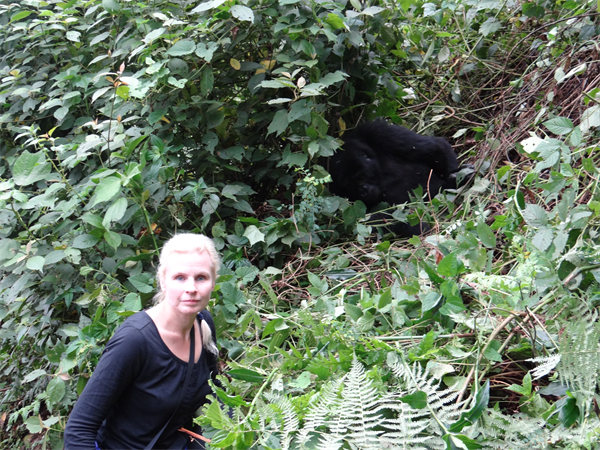Torontonian Erika Schroedersecker never imagined she would be diagnosed with colon and uterine cancers while in her late forties – and she was even more shocked to discover both cancers were caused by Lynch Syndrome, a heritable cancer predisposition syndrome.
“I never in my wildest dreams thought I would have cancer at my age,” says Schroedersecker, who celebrated her milestone 50th birthday in early September. “I was floored, and in tears…And what I didn’t realize was the far-reaching implications of the cancer I had.”
Schroedersecker was 46 when she first noticed blood in her stools. Three non-cancerous polyps were removed. Less than a year later she noticed more blood.
Her gastroenterologist detected one new cancerous polyp, further, Schroedersecker was told the pathology of the tumours showed signs of Lynch Syndrome.
Around two to five per cent of people diagnosed with colorectal cancers have Lynch Syndrome, which is often caused by genetic mutations to one of four DNA mismatch repair genes (MMR), most commonly MLH1 or MSH2. Carriers of the gene have a 50 per cent chance of passing it on to their children.
Schroedersecker tested positive for the MLH1 gene – and with this confirmed her family’s genetic history began to emerge.
Her mother had ovarian, colon, and lung cancer, eventually dying at age 68 of a tumour on her spine, and cancer throughout her body. Her maternal grandfather died of colon cancer at 51. Both are believed to have had Lynch Syndrome.
Lynch Syndrome increases the risk of ovarian and uterine cancers for women, so Schroedersecker and her sister, who also tested positive, underwent hysterectomies. That’s when Schroedersecker’s uterine cancer was detected, fortunately caught in time and removed. She also underwent a bowel resection to remove the colon cancer.
Currently cancer-free, Schroedersecker is focusing on enjoying life and living in the moment. She recently went on a gorilla safari in Uganda, and loves bird watching and collecting rare plants. She admits there are days when what her family now knows can be difficult to bear, but is focusing on living in the now.
She also stresses the importance of research such as Toronto surgeon and TFRI-funded investigator Dr. Steven Gallinger’s colorectal cancer project, a pan-Canadian initiative involving researchers primarily in Ontario and Quebec.
Schroedersecker is a participant in the study, which aims to improve colorectal cancer screening, outcomes, and identify high-risk individuals earlier.
“There’s currently a lot more research and findings for genetically related cancers - not just for colon cancer but for other cancers too,” she says. “They’re really advancing, and I think that is going to make a world of difference in the mortality rate of people with cancer… it’s just a matter of time, money, research, and brilliant minds.”

Erika on a gorilla safari in Uganda